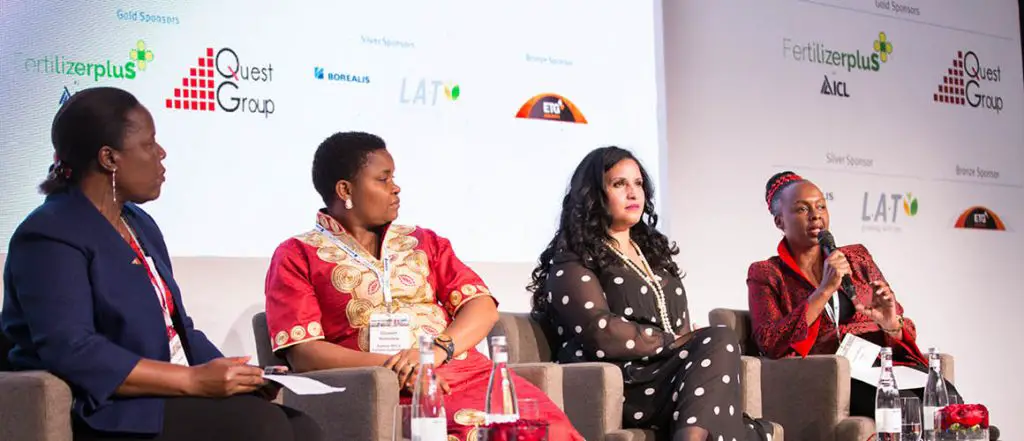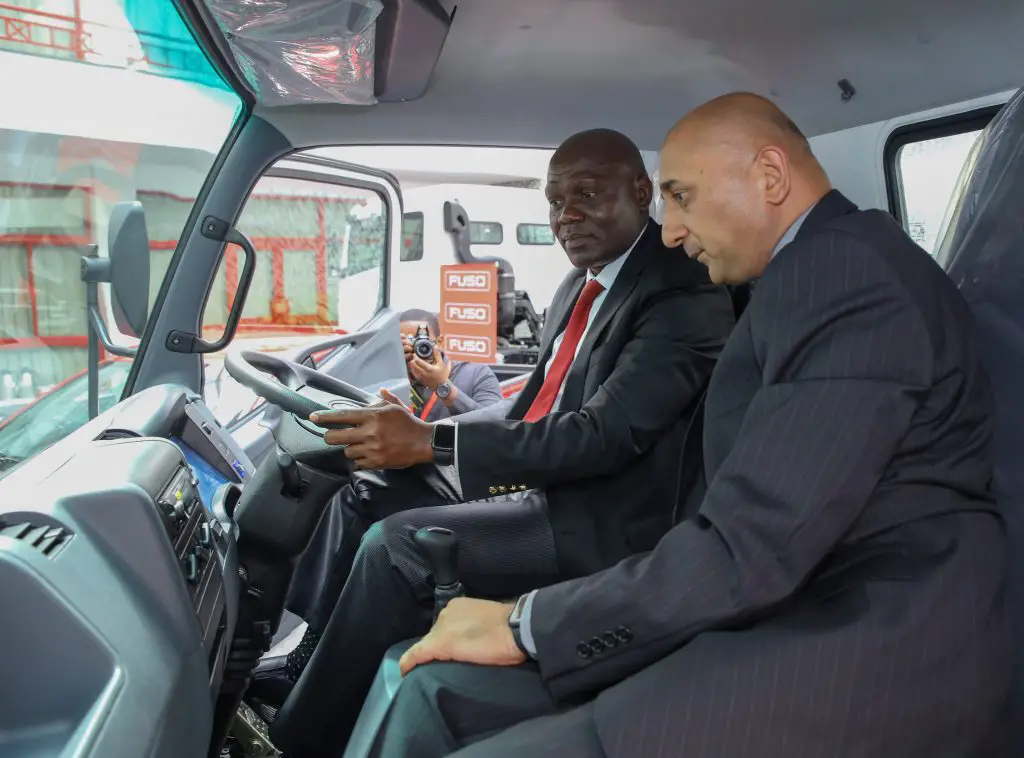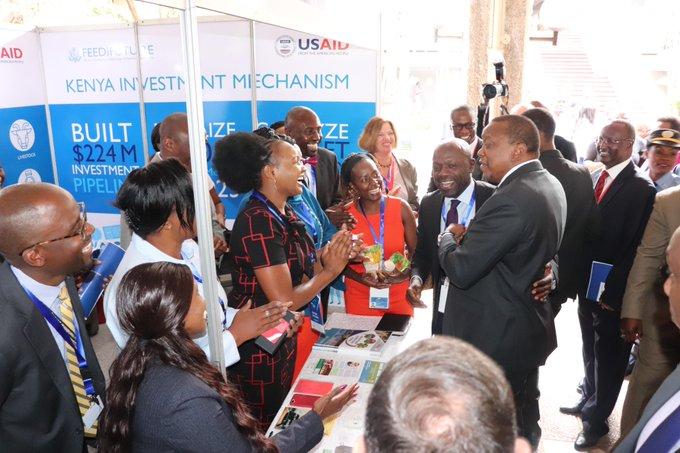- AmCham Summit kicks off, setting course for robust future of US-East Africa trade ties
- Why the UN is raising the red flag on the UK-Rwanda asylum treaty
- Portugal’s Galp Energia projects 10 billion barrels in Namibia’s new oil find
- Wärtsilä Energy offers tips on how Africa can navigate energy transition and grid reliability
- Powering Africa: Africa’s Path to Universal Electricity Access
- Global investment trends at AIM Congress 2024: a spotlight on the keynote speakers
- South Africa’s deepening investment ties in South Sudan oil industry
- Agribusiness could drive Africa’s economic prosperity
Browsing: SMEs
Agribusinesses in the EAC member states are expected to benefit from greater business opportunities in both the East African and European markets.…
The EU presents a huge opportunity for the EAC region SMEs making it a great platform for those in the sector to market their products in Europe.…
Kenya long-term development blueprint, Vision 2030, seeks to transform Kenya into an industrializing, high middle-income country…
Since the September 1995 United Nations’ Fourth World Conference on Women, one would think that the world would have achieved gender parity in all areas and sectors.
However, while there have been important gains over the years, there are still areas that need more work and revised strategies to reduce the gap and meet the target.
Following the world largest global gathering on gender equality in Beijing, China, 25 years ago, member states agreed that the meeting would be a basis for “comprehensive and transformative agenda for gender equality and the empowerment of women and girls.”
A recent report: Gender Equality: Women’s Rights in Review 25 years after Beijing aimed at taking stock of progress has concluded that the implementation has flopped short of the initial potential.
The review by the United Nations Women (UN Women), notes that although the last 25 years have recorded growth in some areas …
If there is one sector that receives great attention in Africa, then it must be the small and medium enterprises (SMEs) area. Over the years, governments and multilateral agencies have identified the great role played by the SMEs in providing jobs, services and contribution to domestic economies.
A National Economic Survey report by the Central Bank of Kenya (CBK) two years ago indicated that SMEs constitute 98 percent of all businesses in Kenya, create 30 percent of jobs annually as well as contribute 3 percent of the GDP.
The situation is similar in the rest of the continent as well as worldwide. According to World Bank, SMEs represent about 90 percent of businesses and more than 50 percent of employment worldwide. Formal SMEs contribute up to 40 percent of national income (GDP) in emerging economies. These numbers are significantly higher when informal SMEs are included.
SMEs are less likely …
 FurtherAfrica Insights – COVID19 series with Kenneth Njoroge from the Money Series Africa in Kenya.
FurtherAfrica Insights – COVID19 series with Kenneth Njoroge from the Money Series Africa in Kenya.
A conversation about how the crisis is affecting one of the cornerstones of the Kenyan economy: Small and Medium companies. Kenneth gives his insights on how the government is handling the crisis and the opportunities arising as we prepare to come back to a new normal.…
The African Development Bank urged development finance institutions, NGOs, farmer cooperatives and the private sector to come up with more effective financing solutions for Africa’s fertilizer value chains.
The Bank’s call came during the Argus Africa Fertilizer Conference held last week. The theme of the conference was Supporting the fertilizer value chain to improve agricultural productivity and economic growth in the region.
“Appropriate investment and financing of the entire fertilizer value chain has become a precondition for achieving our continental objectives in the area of agricultural development,” said Marie-Claire Kalihangabo, coordinator of the Africa Fertilizer Financing Mechanism(AFFM), during a forum on the sidelines of the Conference.
AFFM is a Fund managed by the African Development Bank to accelerate agriculture development in line with the Bank’s High-5 priority, the Sustainable Development Goals, Africa Food Security Vision and the African Union’s Agenda 2063.
Also Read: “Nobody eats GDP” says African Development Bank
…Diamond Trust Bank and Simba Corporation have signed a partnership to enable Small and Medium Enterprises category acquire new Fuso trucks.
The vehicles will be made available with 100 per cent financing under the bank’s motor vehicle financing scheme dubbed ‘Beba Leo’.
The SMEs will be financed to acquire FUSO trucks with a flexible repayment period that enables customers to gradually pay for them without disrupting their cash flow or working capital.
Approval from DTB
Simba Corporation is the largest and sole representative for the distribution and service for a range Fuso trucks including the new FUSO FI and the popular Fuso Canter.
Kennedy Nyakomitta, General Manager in charge of Asset Finance at DTB, said the scheme was developed in a way that would allow the customer to cater to their most pressing needs without any capital outlay.
“This partnership cements our commitment to grow the SME sector. Our decision …
US government in Kenya is developing several mechanisms that are helping small and medium companies in Kenya access local and American investors through raising equity, debt and capital injection. Several companies were part of the recently concluded AmCham Kenya business summit where they pitched their proposals to American investors.
The Kenya Investment Mechanism is funded by USAID as part of Feed the Future, the U.S. Government’s global hunger, and food security initiative. During its first year of implementation, it has built a network of transaction advisors and financial institutions that have mobilized $20.5 M of investments in Kenyan agribusinesses.
KIM is providing a comprehensive and integrated approach to financing actors and increasing competitiveness through the mobilization of capital into the horticulture, dairy, livestock, and clean energy value chains (VCs).
Through financial incentives, training, and technical assistance, KIM is building the capacity of Financial Institutions (FIs) and Business Advisory Services providers …
Tanzania is one of the eight African countries which are to benefit from the African Development Bank`s (AFDB) new grant projects funded by the Agriculture Fast Track Fund (AFT) in support of agribusiness Small and Medium-sized Enterprises (SMEs).
According to a statement issued on 11th March, 2019, the pan African bank is next week expected to launch 17 new grant projects which are to be implemented in eight African countries – Tanzania (4), Ghana (4), Burkina Faso (2), Malawi (2), Mozambique (2), Ethiopia (1), Nigeria (1) and Senegal (1).
The AFT fund is managed by the agriculture and agro-industry department of the African Development Bank. It supports the development of a strong pipeline of `bankable` agriculture infrastructure projects and assists African agribusiness SMEs in project preparation activities to ease their take-off. The fund is supported by the governments of the USA (through USAID), Denmark (through DANIDA) and Sweden …












